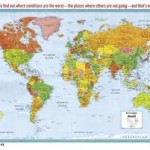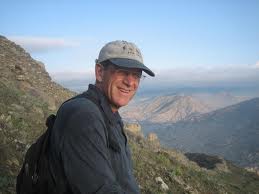February 23rd, 2011
The Passion of Medicine and Its Music
Greg Bratton, MD
 I admit it. International medicine and I don’t dance.
I admit it. International medicine and I don’t dance.
Whereas a lot of my former classmates and current colleagues have gone to Brazil, Ghana, Haiti, Israel, Thailand, and Papua New Guinea for medical missions, I typically travel only as far away as high school football buses can go on a tank of gas. I prefer the comfort of stadium lights and training rooms to that of lean-tos and thatch huts. And I much prefer the smell of fresh cut grass on a Friday night to the odor that still lingers in the streets of Port-au-Prince or the smell of disease in Ghana.
I don’t think this means I am less of a doctor or less of a person; it is just that my passion resides elsewhere. I have great admiration for my colleagues who have braved harsh living conditions and social turmoil to provide care to the indigent of other countries. I learn from their stories of treatment under duress, operating with limited supplies and unsanitary conditions. I embrace their creativity, spontaneity, and resourcefulness. But most of all, I respect their unwavering dedication to serving others.
Ironically for me, international health is a huge player in our residency here in Fort Worth. Not only do we have a rather large contingent of Family Medicine residents who participate in mission trips, we have our own International Health Clinic that provides care to refugees living in Tarrant County. On any given day, we might treat patients from Somalia, Burma, India, or any other remote area of the world. In addition, we have several faculty members who have made international medicine a huge part of their career.
Dr. John Gibson and Dr. David McRay, both graduates of our program, have each spent a significant amount of time in foreign lands. Dr. Gibson lived in and practiced medicine in Thailand for 20+ years, doing everything from primary care to surgery. Dr. McRay, meanwhile, leads multiple medical missions every year, most recently to Haiti and Israel.
But probably one of the most impressive men associated with our program and involved in international medicine never actually was a part of our program. To be honest, I never even met him. Although in reading about him, I wish I would have had the opportunity. Luckily, though, I have the privilege to train alongside his daughter, Kate, who is a third-year resident with me here at JPS.
 Dr. Thomas Little, an optometrist from upstate New York, was 1 of 10 medical missionaries murdered while returning home after a humanitarian mission in northern Afghanistan in early August 2010. In the late 1970s, Dr. Little and his wife, Libby, went to Afghanistan as relief workers and ended up raising their three daughters in the war-torn nation while treating thousands of needy patients each year. Their mission: offering vision care and surgical services to those in regions where medical assistance of any type was virtually absent.
Dr. Thomas Little, an optometrist from upstate New York, was 1 of 10 medical missionaries murdered while returning home after a humanitarian mission in northern Afghanistan in early August 2010. In the late 1970s, Dr. Little and his wife, Libby, went to Afghanistan as relief workers and ended up raising their three daughters in the war-torn nation while treating thousands of needy patients each year. Their mission: offering vision care and surgical services to those in regions where medical assistance of any type was virtually absent.
Unlike my passion, Dr. Little’s passion was always teeming with risk. But Little was reportedly a natural for the job. He spoke the language, knew the local customs, and had the patience and diplomatic skills to handle sticky situations. In fact, in an interview he gave before he died, he recounted times when family picnics ended after attempted Taliban kidnappings. Yet, he and his family stayed “out of a love for the people and a passion for providing eye care for the needy.”
“We raised our three daughters through what was, at times, just hell,” Libby Little said. “A hundred rockets a day was a good day.” She went on to say that warfare in Afghanistan didn’t deter her or her husband. “If you’re in medicine, I think you feel you can’t leave. If you’re propping up a hospital that’s the only hospital, then you can’t leave when it gets bad.”
Before paying the ultimate price, Dr. Little helped to coordinate the National Organization of Ophthalmic Rehabilitation Eye Care Program in Afghanistan, which is charged with overseeing hospitals and clinics, teaching optometry and administering care in the most rural of areas. Through their work, NOOR is able to bring eye care to millions of Afghans. “He died right where he loved to be — and that was doing eye care in remote areas,” Mrs. Little said from her home in New York. “Our daughters are missing him terribly. But I think their feeling is, too, that this is a real passion that he had.”
 Recently, as an “example of generosity and goodwill,” Dr. Little was posthumously awarded the Presidential Medal of Freedom as a way to better know the meaning of sacrifice and the necessity of peace. Along with Dr. Little, other recipients included George H.W. Bush, Dr. Maya Angelou, Warren Buffett, Stan Musial, and Yo-Yo Ma.
Recently, as an “example of generosity and goodwill,” Dr. Little was posthumously awarded the Presidential Medal of Freedom as a way to better know the meaning of sacrifice and the necessity of peace. Along with Dr. Little, other recipients included George H.W. Bush, Dr. Maya Angelou, Warren Buffett, Stan Musial, and Yo-Yo Ma.
“The Medal of Freedom is the Nation’s highest civilian honor, presented to individuals who have made especially meritorious contributions to the security or national interests of the United States, to world peace, or to cultural or other significant public or private endeavors.”
And although he is in great company with those who have also received the award, I believe he was in great company before his death. Dr. Little was in the company of thousands of selfless individuals who also stare death in the face on a daily basis just to bring health and peace and resolution to troubled lands all across the world. In my mind, when his wife received this award from President Obama in honor of her husband, she was receiving the award for all the Dr. Gibsons and Dr. McRays out there who sacrifice their time and money, as well as risk their lives, to fulfill their passion.
So I want to take this opportunity and say thank you to all those who fall into this category. Through your efforts, our world has a better chance of healing its wounds.
I might not be able to dance to your music, but I do love listening to it.

